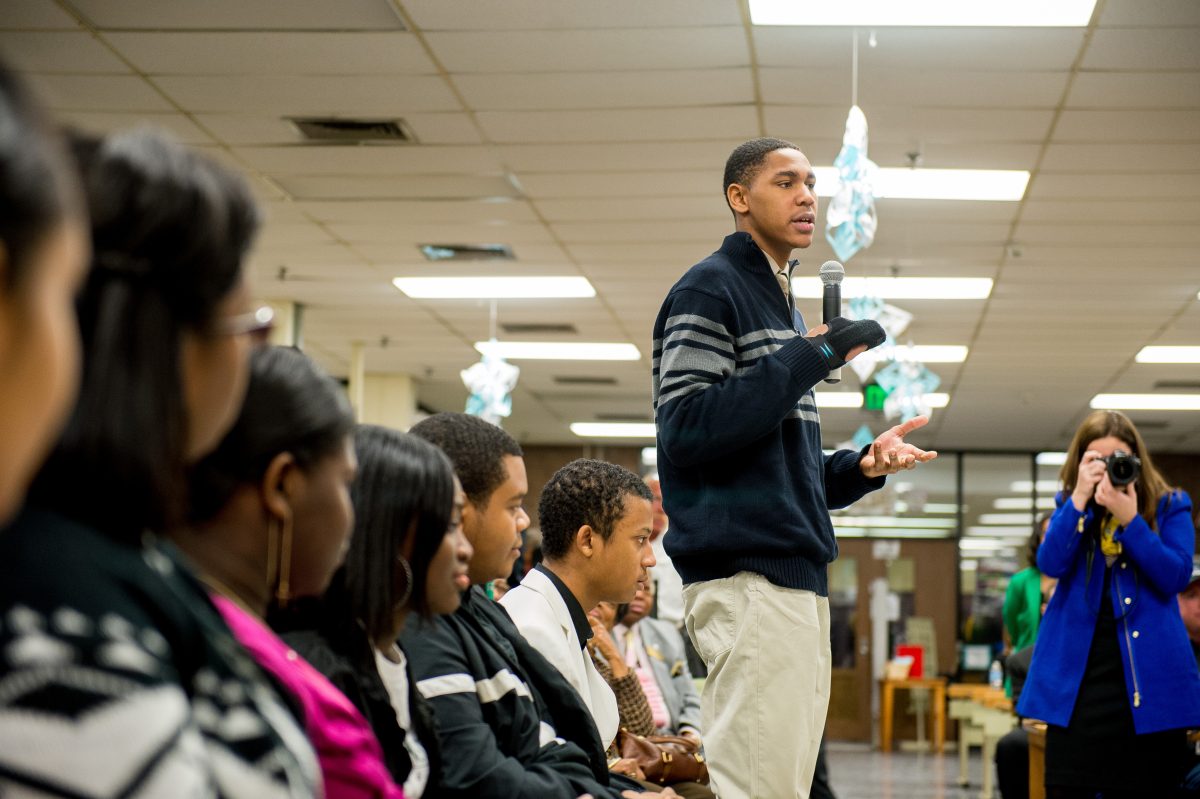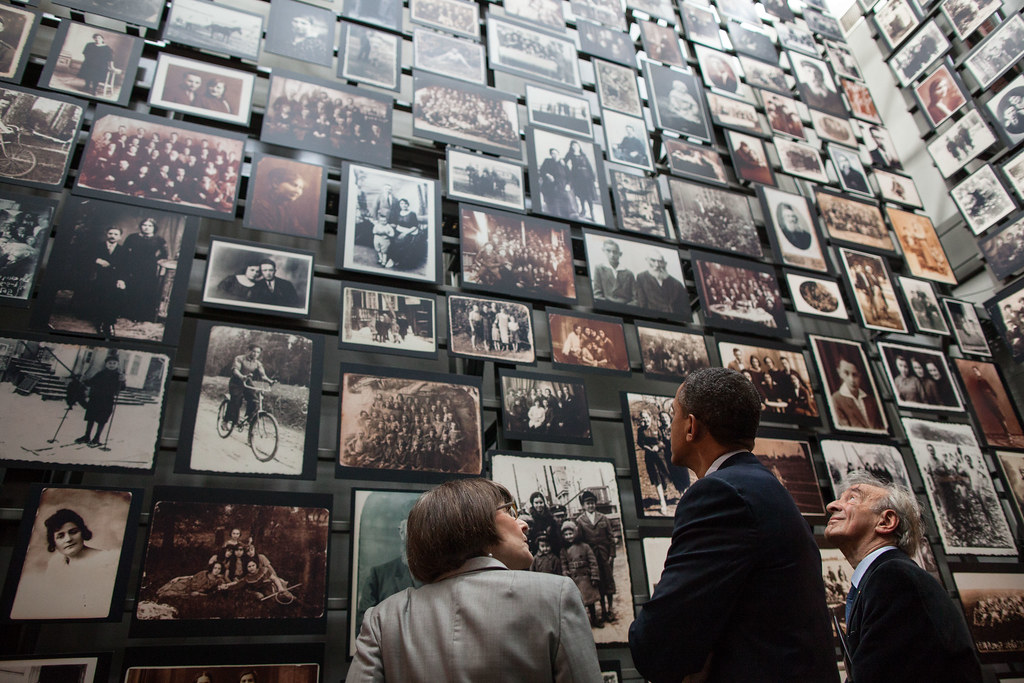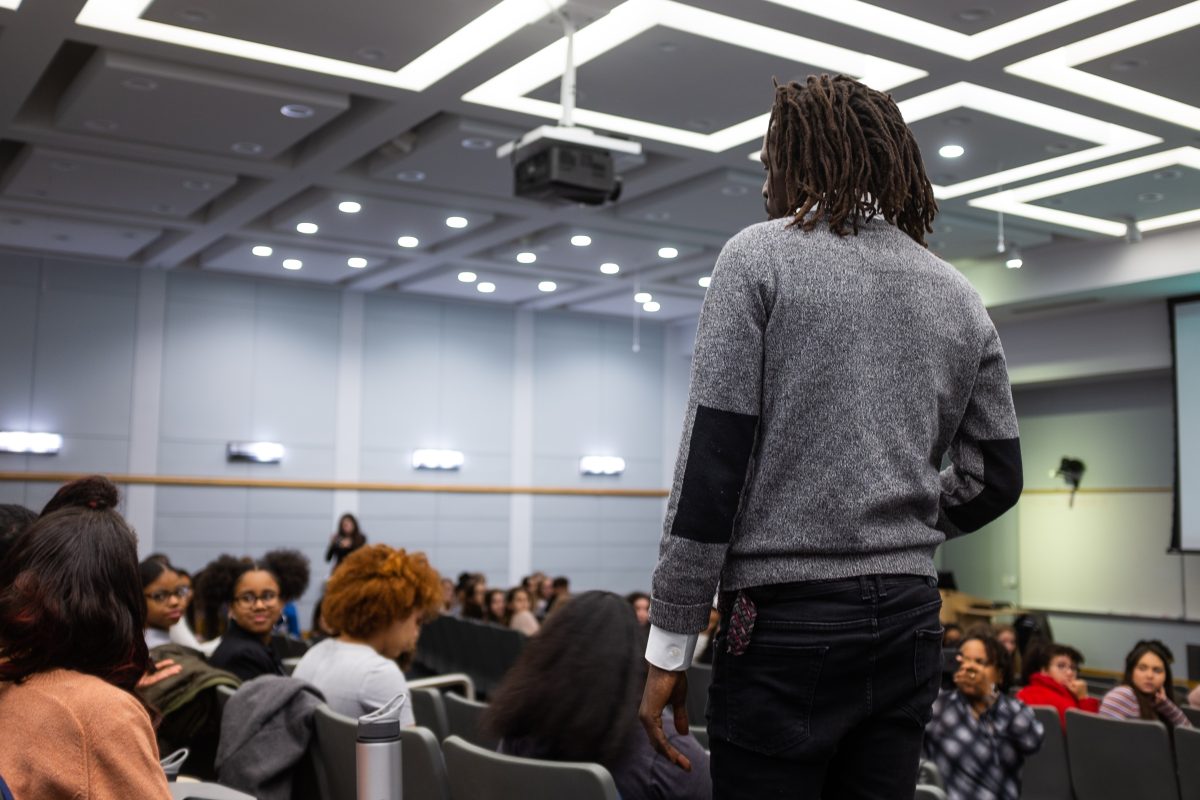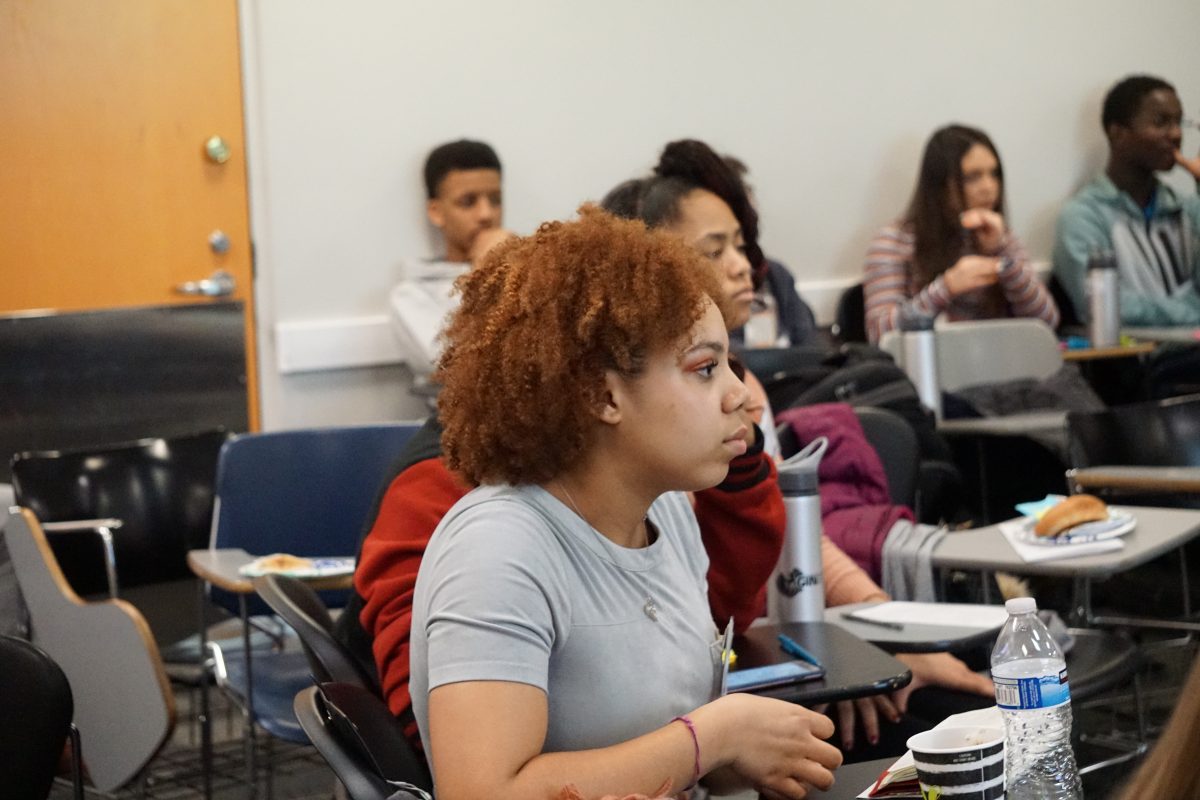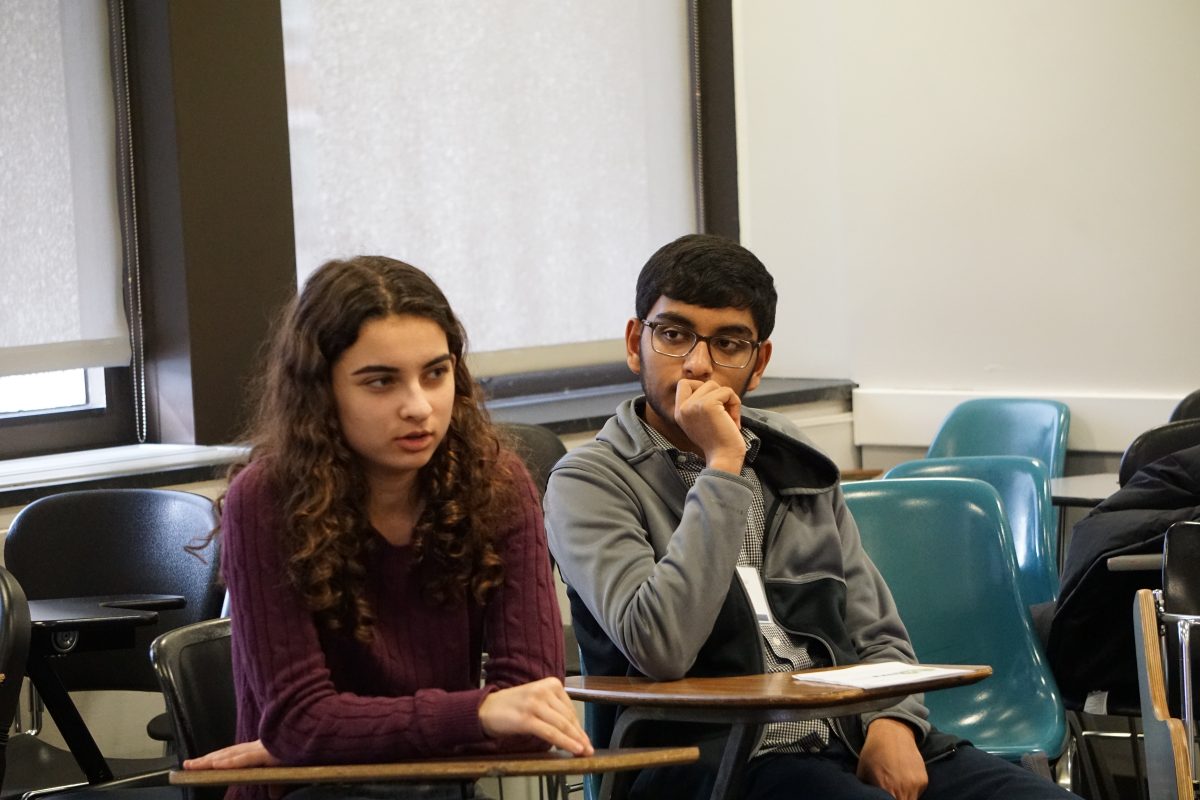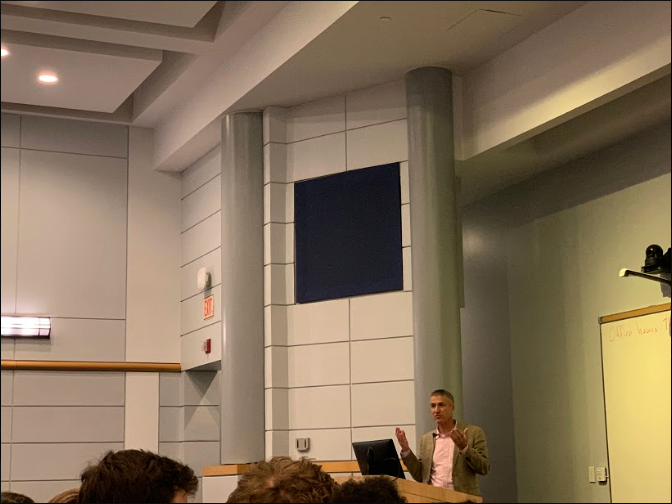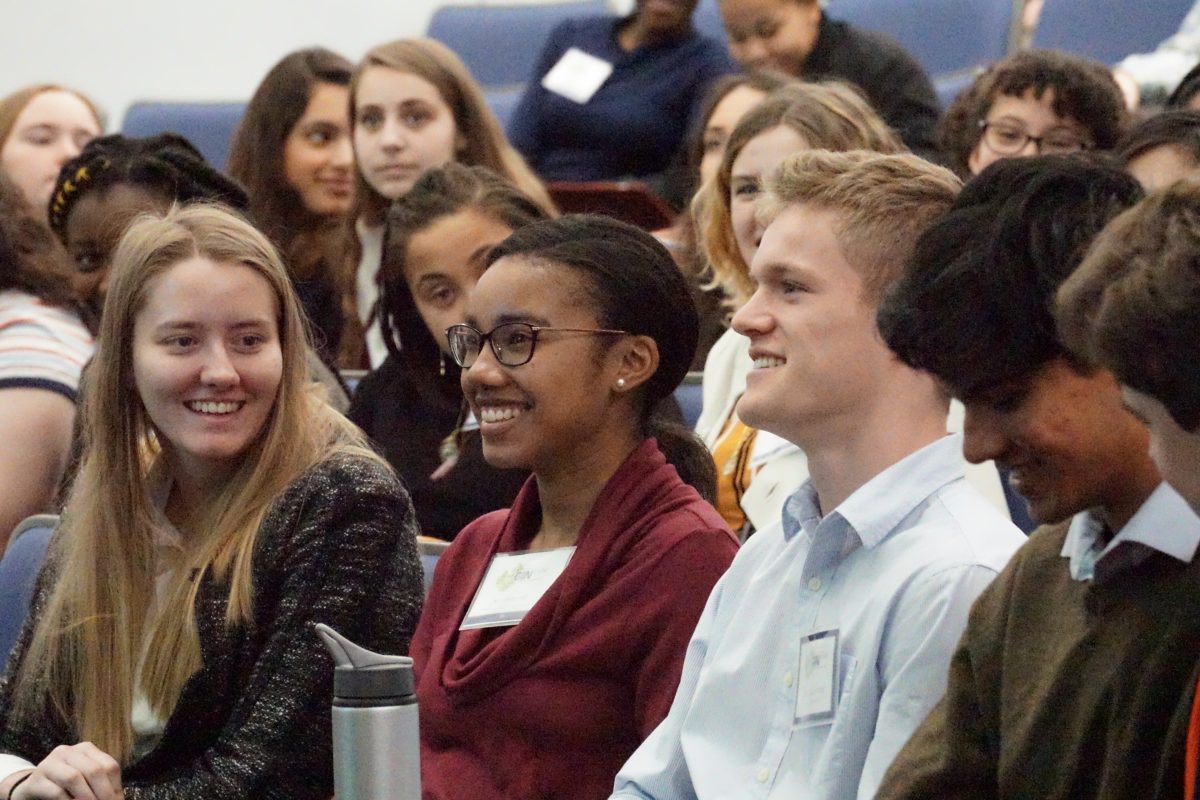At the recent Global Issues Network Conference (GIN) three WIS students led a workshop on the disadvantages and advantages of foreign aid. The students showed great leadership skills and engaged participants in a discussion covering many perspectives.
Last month, the GIN Conference was held at the Norma Lee and Morton Funger Hall on the campus of GW University. This year’s conference focused on conflict and how we as people understand it.
WIS sophomores Ester Luna, Imani N’Krumah-Ardayfio and Inaya Zaman led a discussion-based workshop on foreign aid which became popular by the end of the day.
“This is an issue [foreign aid] that isn’t frequently talked about. Our workshop is meant to create a conversation,” Inaya Zaman said.
The workshop began with a presentation about the pros and cons of foreign aid. After the presentation, many participants had questions regarding the morality of foreign aid.
“Can foreign aid be seen as a form as exploitation?…For example, if a country were to provide aid to another country for the self-benefit of receiving diplomacy in that country,” a passionate participant said.
To continue with the theme of ethics and intention, there was a debate between the disadvantages and advantages of foreign aid. The sides were decided by a split down the middle of the room, challenging students who were not in complete agreement with what they were tasked to argue. This activity brought up many positive and negative components when dealing with foreign aid, creating a discussion.
The main question that arose from the audience is whose responsibility is it to control the aid once the help is in the hands of the receiving countries’ government.
Many participants on the advantage side of the debate argued that the government of the receiving country must uphold accountability and self agency for the foreign aid they receive, whether its financial or resourceful, or long term or short term help.
One of the leaders of the workshop, Imani N’Krumah-Ardayfio, did her 10th grade project on the same topic and felt the need to discuss the topic even more with other students.
Like many students at WIS, the leaders of the workshop have parents who work for the World Bank or International Monetary Fund (IMF), organizations that pride themselves in giving aid across the world. Aligned with Ms. N’Krumah-Ardayfio, students who attended this workshop had an interest in the topic.
Overall, the foreign aid workshop was an informational session which promoted student inquiry and discussion. Further discussion of this topic can spark ideas and movements towards the improvement of the current foreign aid system.
By Riley Contee

































































